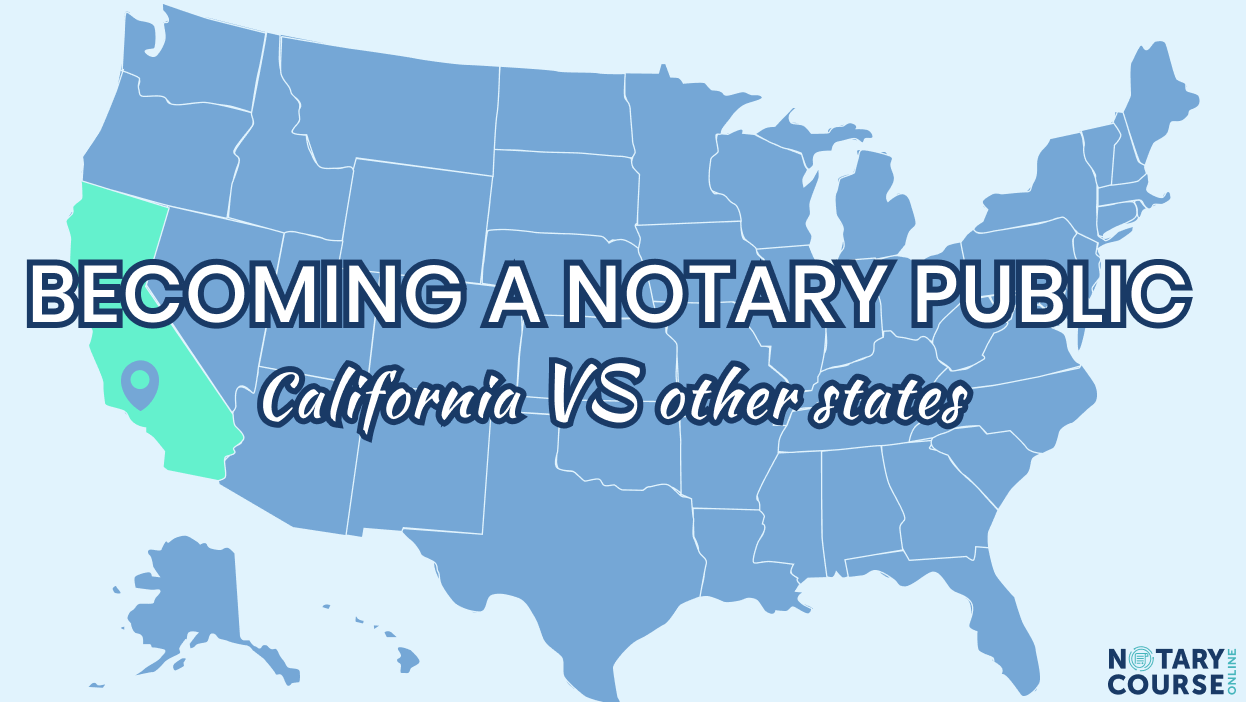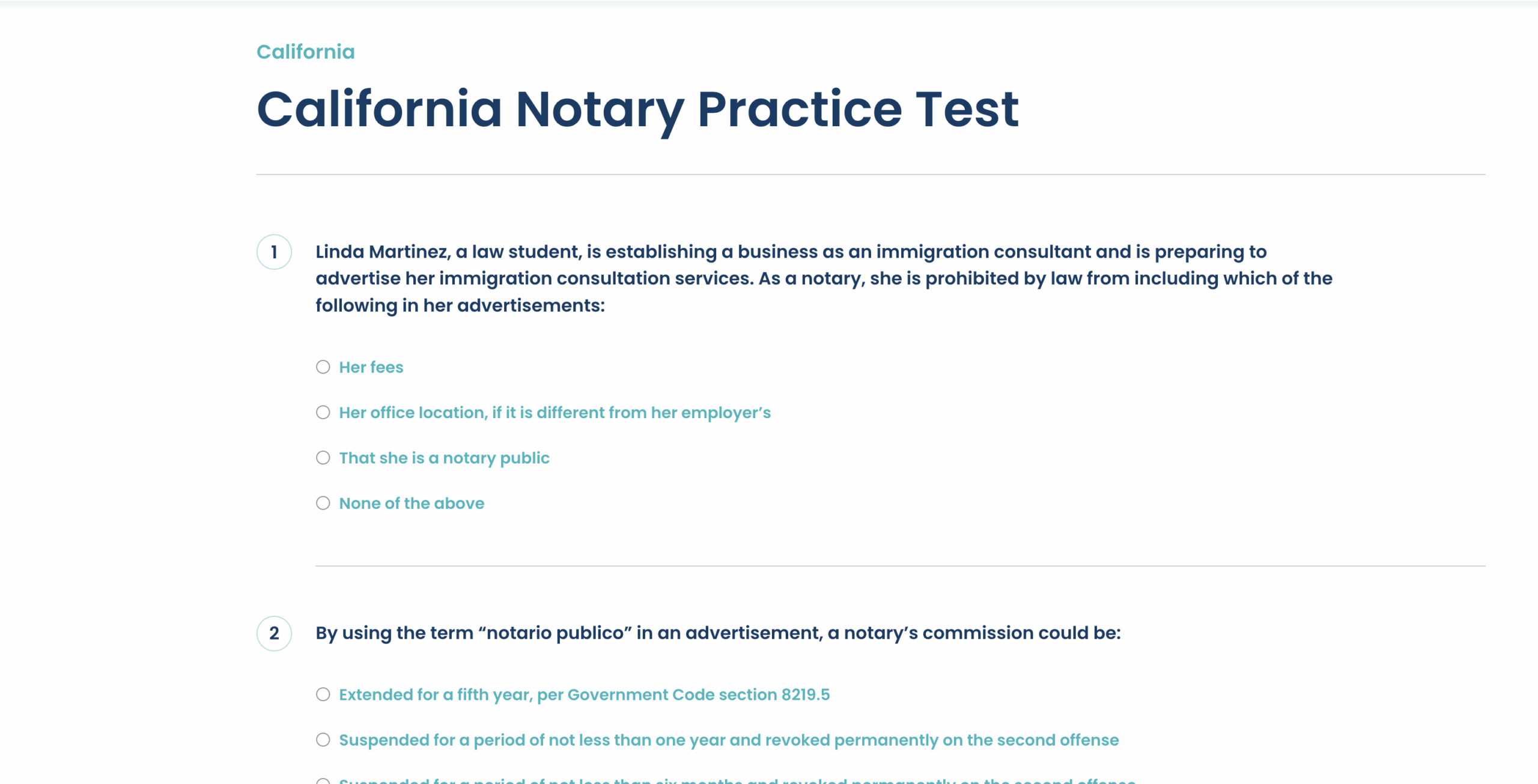California
Blog
Why Listing Notary Public on Your Resume is a Smart Career Move

-
by Notary Course Online
- November 14, 2024
Introduction
In today’s competitive job market, creating a resume that stands out is essential for securing desirable job opportunities. Employers sift through countless applications, seeking candidates who possess not only the requisite skills and experience but also additional qualifications that add value to their team. This is where strategically listing notary public credentials can make a significant difference.
Adding “Notary Public” to your resume is a smart career move that signals trustworthiness, credibility, and a diverse skill set. As a certified notary public, you demonstrate your ability to handle legal responsibilities with integrity and precision—a quality highly regarded across various industries. This unique credential not only enhances your employability but also broadens your career prospects by opening doors to roles that specifically value or require notary services.
Becoming a notary public sets you apart from other candidates. It showcases your dedication to upholding ethical standards and providing an essential service in society. For instance, understanding the nuances of notarizing for family members in California, illustrates your knowledge of legal responsibilities, which is highly regarded across various sectors. Whether you’re looking to advance in your current field or explore new opportunities, understanding why listing notary public on your resume is beneficial can guide you towards making informed career decisions.
Understanding the Role of a Notary Public
A notary public is an official appointed by the state government to perform important tasks in legal matters. Their main responsibilities include:
- Witnessing signatures: Making sure that people signing documents do so willingly and are who they say they are.
- Identity verification: Confirming the identity of the signers of important documents to prevent fraud and ensure legal compliance.
Notaries play a crucial role in upholding the legality and integrity of transactions in various industries. In real estate, they verify deeds and mortgage agreements, ensuring both parties understand the terms before moving forward. In finance, notaries authenticate loan documents, protecting against fraudulent activities. Legal services often require notarial acts for affidavits and statutory declarations to support judicial processes.
The role goes beyond just watching signatures being signed. Notaries must ensure that signers understand the contents and implications of the document, avoiding any misunderstandings or disputes later on. This responsibility emphasizes their significance in safeguarding all parties involved in a transaction.
Industries such as real estate, finance, and law heavily depend on notaries to provide this unbiased verification service. By doing so, they enable smooth operations while maintaining trust and transparency in business dealings.
Resources for Becoming a Notary Public
If you’re interested in becoming a notary public, there are several resources available:
- Requirements: Aspiring notaries should understand the basic requirements to become a notary set by the California Secretary of State.
- Steps to become a notary: Get the full picture of what it takes from A-Z to become a California notary.
- Online courses: These courses offer comprehensive training on notarial practices and procedures.
- California notary supplies: It’s essential for notaries to have access to the right supplies for their work, which can be conveniently found online.
- Practice test: Taking a practice test can be beneficial for those preparing for certification.
Becoming a Notary Public in California
To become a certified notary public in California, you need to follow these important steps. Each step is designed to make sure you’re fully prepared for the responsibilities of being a notary. Here’s how you can get started:
1. Complete a Training Course
The first thing you need to do is sign up for a state-approved training course for notary public. This course is crucial as it teaches you about the laws governing notaries, ethical practices, and the procedures you need to follow when performing notarial acts. The training usually lasts six hours and covers important topics like preventing fraud and verifying documents.
2. Prepare the Application
Once you’ve finished the training course, prepare your application and register at date to take the state exam. Along with your complete application, include proof that you have completed the training and include a 2” x 2” color passport photograph of yourself. Make sure that all the personal information provided in your application is accurate and up-to-date.
3. Pass the California Notary Public Examination
The next step is to pass the California Notary Public Examination. This exam evaluates your understanding of notarial laws and procedures. It’s essential to prepare thoroughly for this exam since passing it is a requirement for certification. Your application paperwork and fees will be submitted when you arrive to take the exam.
4. Fulfill State Requirements
In addition to passing the exam, there are specific requirements set by the state that you must fulfill:
- Background Check: As an applicant, you will be required to undergo a comprehensive background check to ensure that you have no disqualifying criminal history.
- Surety Bond: You must obtain a surety bond in the amount of $15,000. This bond serves as a financial guarantee for your clients against any potential misconduct on your part as a notary.
By following these steps, you’ll be legally and ethically prepared to take on the responsibilities of being a notary public in one of the most populated states in America. Understanding these requirements ensures that you meet California’s high standards for this respected profession.
If you’re thinking about pursuing this career path, it’s worth noting that becoming a notary in California is a viable career choice, with high demand and earning potential. For more detailed guidance on how to become a notary public in California, feel free to explore our notary public blog which offers news, tips, and articles related to this field. Additionally, if you’re looking for specific California notary services, we have resources available that can assist you further.
Enhanced Credibility and Trustworthiness
Listing notary public credentials on your resume is a strategic move that can dramatically boost your personal and professional credibility. In the eyes of employers, clients, and colleagues, being a certified notary signifies a strong commitment to ethical conduct and trustworthiness. These are qualities highly valued across various industries.
1. Personal Credibility
Holding a notary public commission reflects an individual’s dedication to upholding the law and maintaining high ethical standards. This commitment enhances your reputation, positioning you as a reliable and responsible professional. Employers often see notaries as trustworthy individuals who can handle sensitive and confidential information with integrity.
2. Professional Credibility
In many fields, such as finance and legal services, document authenticity is paramount. Having a notary public on staff ensures that crucial documents are handled with the utmost care, boosting the overall credibility of the organization. This makes you an invaluable asset in roles that require meticulous attention to detail and adherence to legal standards.
The high ethical standards expected from notaries reinforce their role as impartial witnesses in significant transactions. This expectation of ethical conduct not only enhances trust but also distinguishes you from other candidates in competitive job markets. Incorporating this qualification into your resume communicates your readiness to uphold these standards, thereby enhancing your appeal to potential employers.
Moreover, connecting through social media can further amplify your credibility by showcasing your notary credentials to a wider audience. On the other hand, it’s important to be aware of the challenges that mobile notaries often face, as these experiences could provide valuable insights and stories that enhance your professional narrative.
Increased Job Opportunities
Being a certified notary public opens doors to varied job opportunities across multiple industries. In real estate, for instance, notaries are invaluable for facilitating property transactions and ensuring the authenticity of documents. Similarly, in the legal field, having a notary on staff can streamline processes involving affidavits and sworn statements.
The financial sector also benefits significantly from in-house notaries who can expedite loan signings and other financial agreements. Meanwhile, government agencies often require notarized documents, making notary skills highly sought-after.
Job Roles That Benefit:
- Real Estate Agents: Can offer added value by notarizing client documents.
- Legal Assistants: Provide comprehensive support by handling notarizations.
- Administrative Professionals: Enhance their roles by managing document authentication processes.
Challenges exist when leveraging notary certification for career advancement. For instance, while being a notary is an asset, it may not be sufficient alone to secure certain positions without additional qualifications or experience. Additionally, some organizations may prefer specialized industry certifications over general notary credentials.
Despite these limitations, the competitive edge provided by being a certified notary public remains significant, offering unique advantages in job markets that value precision and trustworthiness.
Advantages of Professional Networking
Being part of the notary community offers significant networking benefits that can enhance your professional journey. Connecting with other notaries allows for the exchange of insights and experiences, creating a supportive environment where collaboration thrives. This network can provide referrals, opening doors to new business prospects, especially for those working independently.
Opportunities for Collaboration
Notaries often work alongside real estate agents, attorneys, financial advisors, and other professionals. These interactions create pathways for building strong professional relationships, leading to potential collaborations that can expand your business reach.
Here are some ways collaboration can benefit your notary business:
- Referrals: Notaries often receive referrals from colleagues who require additional services.
- New Business Prospects: Engaging with industry professionals increases exposure and opportunities.
- Collaborative Ventures: Joint ventures with other professionals in related fields become more accessible.
Connecting within the notary community is not just about expanding your contact list. It’s about creating meaningful connections that can elevate your career by providing support and opportunities for growth. As you cultivate these relationships, you gain valuable insights into trends and best practices within the industry, enhancing both your skills and reputation. Being steady and ready in such a dynamic environment is crucial for seizing these opportunities effectively.
Tips for Showcasing Notary Public Status on Your Resume
Enhancing your resume with notary credentials can be a smart career move, setting you apart in the competitive job market. Highlighting this qualification effectively on your resume is key to making a strong impression.
Placement Strategies
- Certifications Section: Include your notary public certification prominently. Detail the state and year of certification to emphasize currency and compliance.
- Education Section: If you completed specific training required for the notary role, list details here to showcase dedication and expertise.
Highlight Relevant Experience
- Mention any instances where your notary duties were integral to task completion or contributed positively to project outcomes.
- Use bullet points under relevant job roles or experience sections to succinctly present these contributions.
Emphasize Transferable Skills
- Discuss skills such as attention to detail, legal knowledge, and ethical conduct gained from notary responsibilities.
- Align these skills with the requirements of potential job roles you’re pursuing.
This structured approach ensures that your notary status not only enriches your resume but also enhances your professional appeal.
Conclusion
The benefits of listing notary public on your resume make it clear why this credential can be a smart career move. It not only enhances your resume with an element of trustworthiness and credibility, but also equips you with a diverse skill set that is highly valued across various industries.
- Stand Out: In a competitive job market, being a certified notary public sets you apart, showcasing your commitment to ethical conduct and professional development.
- Essential Role: As a notary, you fulfill an important societal function, helping individuals navigate legal processes smoothly and efficiently.
Whether you’re in real estate, finance, or any field requiring document verification, adding this credential can significantly elevate your career prospects. If you’re seeking to differentiate yourself while contributing meaningfully to your community, pursuing notary public certification could be your next strategic step.
FAQs (Frequently Asked Questions)
What are the key responsibilities of a notary public?
A notary public is responsible for witnessing signatures, verifying the authenticity completeness of documents, and ensuring that important transactions are conducted legally and ethically. Their role is crucial across various industries, as they help maintain the integrity of legal processes.
What steps do I need to take to become a notary public in California?
To become a certified notary public in California, you must complete a state-approved training course, pass the California Notary Public Examination, and meet specific requirements such as undergoing a background check and obtaining a surety bond. It's essential to familiarize yourself with all state regulations before starting the process.
How does being a notary public increase my job opportunities?
Being a certified notary public can provide you with a distinct advantage in various industries, including real estate, legal services, and finance. Employers often seek candidates with additional qualifications like notary credentials as it indicates reliability and enhanced skill sets. However, there may be challenges in leveraging this status for career advancement depending on the industry.
What networking advantages come with being part of the notary community?
Joining the notary community offers valuable networking opportunities that can lead to referrals and new business prospects. Collaborating with other professionals in this field enhances your visibility and opens doors for partnerships or independent work as a notary.
How can I effectively showcase my notary public status on my resume?
To effectively highlight your certification as a qualified notary public on your resume, include it in the certifications section or under education. Be sure to specify your credentials clearly and consider mentioning any relevant experience or skills that relate to your role as a notary to further enhance your resume's impact.






 Congratulations!
Congratulations!